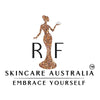The Ultimate Guide To Sunscreen: Why You Need It, How To Apply It & More
26 Aug 2022
4 Comments

It might seem like a no-brainer, but you'd be surprised at how many people don't use sunscreen. It's not just about blocking harmful UV rays and preventing future skin damage; it's about self-esteem and feeling confident in your own skin. Find out why it's important to wear sunscreen every time you go outside, and how to choose the right one for your needs!
Benefits of Sunscreen
There are many benefits to using sunscreen, including protecting your skin from harmful UV rays, preventing sunburn, and reducing your risk of skin cancer. Wearing sunscreen can also help to reduce the appearance of wrinkles and fine lines.What is sunscreen?
sunscreen is a lotion, spray, gel, or other product that you put on your skin to protect it from the sun’s ultraviolet (UV) rays. Ultraviolet (UV) radiation is a type of energy from the sun that is invisible to the human eye. It can be harmful to the skin, causing sunburn, premature aging, and an increased risk for skin cancer.Sunscreen works by absorbing, reflecting, or scattering UV rays before they reach the skin. There are two types of ultraviolet radiation: UVA and UVB. UVB rays are the main cause of sunburn and are considered the main cause of skin cancer. UVA rays are not as intense as UVB rays, but they penetrate deeper into the skin and can also cause skin damage and cancer.
When choosing a sunscreen, it is important to look for one that offers “broad-spectrum” protection against both UVA and UVB rays. The Sun Protection Factor (SPF) is a measure of how well a sunscreen protects against UVB rays. The higher the SPF, the greater the protection. However, no sunscreen can block all UV rays.
SPF and UV Rating
When it comes to sunscreen, the most important thing to look for is the SPF rating. This stands for Sun Protection Factor, and it indicates how well the sunscreen will protect your skin from harmful UV rays. The higher the SPF, the better. However, it's important to remember that no sunscreen is 100% effective. That's why it's also important to reapply sunscreen every two hours, or more often if you're sweating or swimming.In addition to the SPF rating, you should also look for a sunscreen that has a high UV rating. This indicates how well the sunscreen will block UV rays. The higher the UV rating, the better.
When choosing a sunscreen, be sure to read the label carefully. Some sunscreens are labeled "broad-spectrum," which means they provide protection against both UVA and UVB rays. Others are labeled "UVA only" or "UVB only." Be sure to choose a broad-spectrum sunscreen for the best protection against all types of UV rays.
Does sunscreen expire?
We all know that sunscreen is important for protecting our skin from the harmful rays of the sun. But did you know that sunscreen can actually expire? That's right, those expiration dates on the bottle are there for a reason. Sunscreen expires because its ingredients breakdown over time and become less effective. So if you're using an expired sunscreen, you're not getting the full protection you need.But how can you tell if your sunscreen has expired? Well, most sunscreens will have an expiration date printed on the bottle. If there is no expiration date, it's best to replace it after one year. You should also check the consistency of the sunscreen before using it. If it looks or feels different from when you first bought it, it's probably time to get a new one.
So now that you know why sunscreen expires and how to tell if yours has expired, be sure to always check the label before heading out into the sun!
Recommended Usage for Sunscreen
When it comes to sunscreen, more is not always better. In fact, using too much sunscreen can actually be harmful to your health. The best way to use sunscreen is to apply it liberally to all exposed skin, including the face, neck, ears, and hands. Be sure to reapply every two hours, or more often if you are swimming or sweating.Sunscreen Tips for Children and the Elderly
Summertime means beach days, pool parties, and outdoor activities galore. And while sunscreen is a must for everyone, it’s especially important for children and the elderly. Here are some tips to keep in mind when applying sunscreen to these groups of people.Children:
-Apply sunscreen generously and often, especially if they’re swimming or sweating.
-Look for a sunscreen that’s water-resistant and has an SPF of at least 30.
-Don’t forget to protect their lips with a lip balm that contains SPF.
Elderly:
-The same rules apply to the elderly as to children – generous application and reapplication is key.
-However, elderly skin is thinner and more fragile, so be sure to choose a gentle sunscreen formula that won’t irritate their skin.
-Also, since many medications can make skin more sensitive to the sun, be sure to check with their doctor before using any new sunscreen products.
Conclusion
In conclusion, sunscreen is an essential part of any skincare routine. It helps to protect against the harmful rays of the sun and can help to prevent skin cancer. There are a variety of different types of sunscreen available on the market, so it is important to choose one that is right for your skin type. Be sure to apply sunscreen generously and evenly over all exposed areas of skin, including the face, neck, ears, and hands. Reapply every two hours or as needed if you are swimming or sweating.
Tags:


4 Comments
Great initiative taken by RF SKIN CARE.
Its an amazing information and good blog.